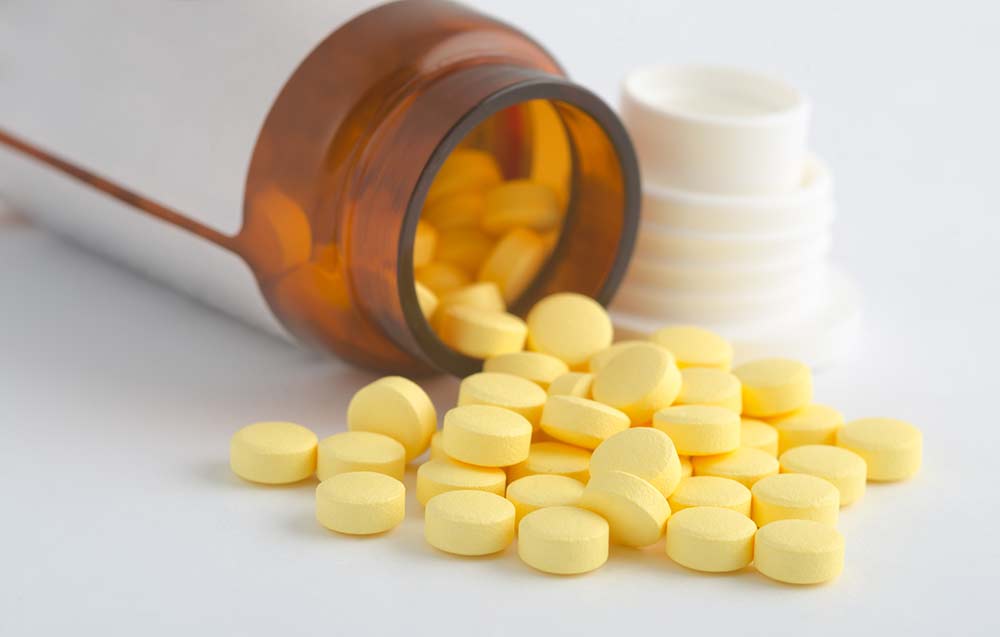5 Organs Damaged by Long-Term Adderall Abuse

When a medication is prescribed for the treatment of legitimate conditions, the user doesn’t generally worry about negative side effects. They take the drug to get better, to be able to function properly, to feel normal. Sometimes, however, long-term stimulant use of a drug like Adderall turns into abuse, which can result in serious impairment to five of the body’s organs.
What Is Adderall?
Adderall is the brand name for a prescription drug, amphetamine-dextroamphetamine. Adderall is prescribed for those suffering with attention deficit hyperactivity disorder (ADHD) as a means of increasing focus and attention spans. The drug is also sometimes prescribed to treat narcolepsy and daytime sleepiness. Adderall is a federally controlled substance due to its abuse and dependence potential.
How Is Adderall Abused?
Adderall’s ability to increase focus and attention span has led to its abuse as a “smart drug” on college campuses across the nation. The drive to get more things done, to stay up late to study for exams and remain focused for extended periods of time is a strong inducement to students who face enormous pressures inherent in their higher education. A 2011 study reported by CNN found that 30 percent of students at the University of Kentucky illegally used a stimulant drug such as Adderall or Ritalin.
Another way that the prescription drug abused is for weight loss purposes. Since the drug works to suppress the appetite, its allure as a weight loss drug has increased abuse potential as well.
Some use Adderall in combination with alcohol or other drugs with the express purpose of getting “high.” Recreationally mixing Adderall with other drugs is extremely dangerous as it could quickly and easily involve an overdose that is potentially fatal. There is also the risk of negative interactions between the substances consumed.
Adderall, like other stimulant drugs, is addictive. Using such drugs recreationally may lead to unintentional physical and psychological dependence on them.
Organs Damaged by Long-Term Adderall Abuse
Adderall, used appropriately and under prescription only, offers help to those suffering from ADHD. Unfortunately, its popularity as a study drug, weight loss drug, and a drug used to deliberately get high has resulted in increasing Adderall abuse. The longer and heavier the use, the more increase there is of risk factors and potential long-term side effects. These progressively get worse.
Several key organs are negatively affected by long-term Adderall abuse. These include the brain, heart and cardiovascular system, liver, kidneys, and lungs. For a detailed explanation of each individual side effect, we suggest reading our Adderall Side Effects Guide.
The Brain
Being able to focus with pinpoint accuracy and hone in on details without effort, while requiring less sleep and not worrying about eating comes with some serious drawbacks with long-term Adderall abuse. Tolerance builds, necessitating more Adderall needed at each dose to maintain the same effect. When the drug is stopped, drug cravings and Adderall withdrawal symptoms are likely to occur, indicative of dependence on the substance.
In addition, how the drug is consumed influences how quickly it gets to the brain. Adderall users who crush the pills and then snort or inject them receive a rush to the brain that’s quicker than swallowing them and having them enter the bloodstream via the digestive tract. Crushing or snorting Adderall can lead to life-threatening overdose and the potential for addiction.
But what other effects to the brain does Adderall have? As published by Molecular Psychiatry, Adderall has been reported to cause psychosis and other schizophrenia-like symptoms. These include hallucinations, paranoid delusions, behavioral and mood disturbances. Panic attacks and anxiety may be triggered by prolonged Adderall use, or during withdrawal from the drug.
Excessive Adderall use can also lead to seizures. An Adderall overdose can cause the body’s temperature regulation system to malfunction, causing the body to overheat. This condition, called hyperthermia, can lead to fatigue, nausea, thirst, sweating, coma, and even permanent brain damage. Internal bleeding that Adderall may cause can predispose the drug’s user to confusion, loss of consciousness and paralysis on one side.
The Heart and Cardiovascular System
When used for a prolonged period and to excess, Adderall delivers a powerful punch to critical life-support organs, including the heart and cardiovascular system. Brain and Behavior reports that the most common cardiovascular problems reported from misuse of this stimulant medication are high blood pressure (hypertension) and irregular heart rate (tachycardia). In addition to a weakening of the heart muscle from prolonged use, long-term abuse of Adderall can also lead to other heart complications and sudden cardiac death.
The Liver
Liver damage is nothing to take lightly, yet countless Adderall abusers fail to recognize the negative consequences of continued use of the drug to this all-important bodily organ.
Signs of liver disease damage caused by drugs include yellowing of the eyes, loss of appetite, itching, fatigue and confusion. In severe liver disease associated with cirrhosis, signs include edema (accumulation of fluid in the abdomen and legs), gastrointestinal bleeding, vulnerability to bacterial infections, and coma.
The Kidneys
Along with the liver, another major bodily organ susceptible to severe damage from Adderall abuse are the kidneys. The major functions of the kidneys are to remove wastes and extra water from the blood to create urine. Kidneys also release three important hormones: erythropoietin, which stimulates the production of red blood cells from the bones; renin, necessary for regulation of blood pressure, and an active form of vitamin D, essential for maintaining bone calcium and normal body chemical balance.
With long-term abuse of Adderall, the user subjects him or herself to the prospect of increasing damage to these vital organs.
Signs of kidney failure include pain in the abdomen, bruising, foul breath, and swollen feet, ankles, or legs.
The Lungs
Adderall users who snort or inject the crushed-up drug increase the risk of lung damage. Pills may contain fillers, which can block blood flow in tiny blood vessels. Pulmonary hypertension, which is high blood pressure in the lungs due to blood vessel blockage), can lead to permanent damage to the lungs.
With such a list of potential adverse consequences from prolonged Adderall abuse, the natural reaction might be to wonder why anyone would consider continuing use. The transition from use to misuse, particularly when the medication is used for recreational purposes, can occur rapidly. Once addicted, users find it difficult to overcome Adderall dependence. Treatment begins with tapering drug usage and managing withdrawal symptoms. After detoxification from Adderall, behavioral therapies—like those used for cocaine and methamphetamine addiction—may be part of the treatment program. There are no medications currently approved by the Food and Drug Administration (FDA) for the treatment of stimulant addiction.
Sources:
Livestrong.com, “Dangers of an Adderall Overdose.” Retrieved April 23, 2017
MedicineNet.com, “Drug-Induced Liver Disease.” Retrieved April 23, 2017
Narconon, “Stimulants: Damage to Heart and Lungs.” Retrieved April 23, 2017
National Center for Biotechnology Information (NCBI), U.S. National Library of Medicine, Brain and Behavior, “Prescription stimulants in individuals with and without attention deficit hyperactivity disorder; misuse, cognitive impact, and adverse effects.” Retrieved April 23, 2017
National Center for Biotechnology Information (NCBI), U.S. National Library of Medicine, Molecular Psychiatry, “Potential Adverse Effects of Amphetamine Treatment on Brain and Behavior: A Review.” Retrieved April 23, 2017


